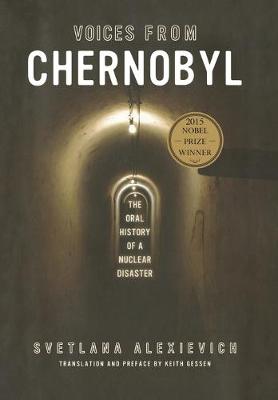
lex6819
Written on Jul 13, 2019

Bookhype may earn a small commission from qualifying purchases. Full disclosure.
Winner of the Nobel Prize in Literature
Winner of the National Book Critics Circle AwardA journalist by trade, who now suffers from an immune deficiency developed while researching this book, presents personal accounts of what happened to the people of Belarus after the nuclear reactor accident in 1986, and the fear, anger, and uncertainty that they still live with. The Nobel Prize in Literature 2015 was awarded to Svetlana Alexievich "for her polyphonic writings, a monument to suffering and courage in our time."


Soldiers came for us in cars. I thought the war had started. They were saying these things: “deactivation,” “isotopes.” One soldier was chasing after a cat. The dosimeter was working on the cat like an automatic: click, click. A boy and a girl were chasing the cat, too. The boy was all right, but the girl kept crying, “I won’t give him up!” She was yelling: “Run away, run little girl!” But the soldier had a big plastic bag.I was amazed at the skill Alexievich showed in getting to the emotional heart of her subjects. She conveyed their voices with precision and depth. She began and ended the collection with the two most gut-wrenching tales – tales of wives who lost their husbands and the pain they had to endure. It drew me in and ensured that all these stories would linger in my mind, quite possibly for the rest of my life.
The sparrows disappeared from our town in the first year after the accident. They were lying around everywhere – in the yards, on the asphalt. They’d be raked up and taken away in the containers with the leaves. They didn’t let people burn the leaves that year, because they were radioactive, so they buried the leaves.Voices from Chernobyl offers very little context or background. This works in its favour. The stories speak for themselves. The reality is, the people telling the stories were just as much in the dark (in fact, more so!) than a reader would be, and so it makes it all the more impactful to hear their stories without comment.
The sparrows came back two years later. We were so happy, we were calling to each other: “I saw a sparrow yesterday! They’re back.”
The May bugs also disappeared, and they haven’t come back. Maybe they’ll come back in a hundred years or a thousand. That’s what our teacher says. I won’t see them.